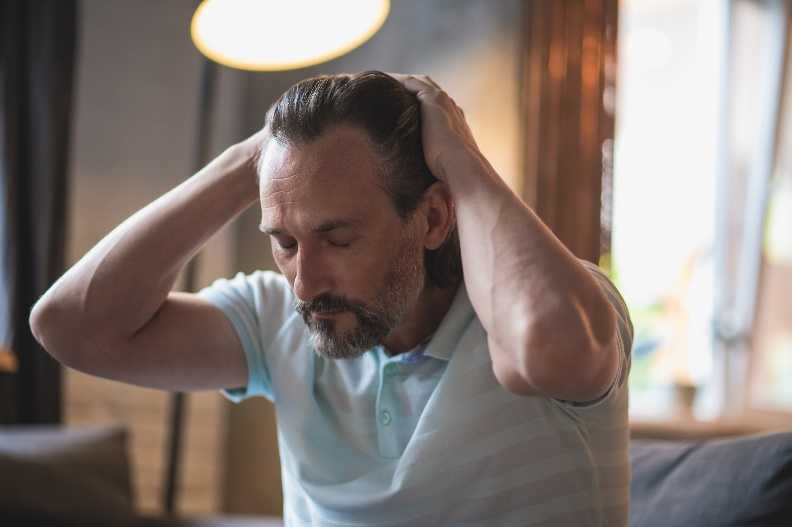Testosterone, a hormone synonymous with masculinity, has far-reaching effects on both physical and mental health. It is not just a mere facilitator of male sexual development but plays a pivotal role in the overall well-being of men. However, when testosterone levels fall below the normal range, a condition known as hypogonadism or low testosterone ensues, leading to various health issues. Understanding the symptoms, causes, and impacts of low testosterone is crucial in addressing the condition effectively.
Low testosterone affects millions of men worldwide, with its prevalence increasing notably with age. But age is not the only factor; conditions like Klinefelter syndrome and lifestyle choices also play significant roles. Klinefelter syndrome, in particular, is a chromosomal condition where males have an extra X chromosome. This extra genetic material can lead to lower testosterone production, influencing various aspects of health and development.
The symptoms of low testosterone are varied and often misunderstood. They can range from physical changes like muscle loss and increased body fat to emotional and psychological changes such as mood swings and depression. The condition is more than just a decline in sexual performance or desire; it's a comprehensive issue that can significantly affect a man's quality of life.
Moreover, low testosterone is not a standalone issue. It's often intertwined with other health conditions like obesity, diabetes, and heart diseases. The complex interplay between these conditions can create a challenging health scenario for affected individuals. For instance, obesity can lead to lower testosterone levels, which in turn can exacerbate weight issues, creating a vicious cycle.
The societal perception of low testosterone also plays a role in how individuals approach and manage the condition. There's often a stigma associated with the symptoms, particularly those related to sexual performance and mental health. This stigma can prevent men from seeking the necessary medical attention, leading to a deterioration in their health and well-being.
In this comprehensive exploration, we will delve deep into the various facets of low testosterone. We aim to demystify the condition, provide detailed insights into its symptoms, causes, and treatments, and address the most frequently asked questions. By the end of this article, readers will have a thorough understanding of low testosterone, equipping them with the knowledge to seek appropriate care or support others facing this condition.
What is Testosterone and its Role in the Body?
Testosterone, often hailed as the quintessential male hormone, plays a critical role in men's health. It's a key player in developing male reproductive tissues, including the testes and prostate, and promotes secondary sexual characteristics like increased muscle and bone mass, and the growth of body hair. However, its impact extends far beyond these basic functions.
Testosterone influences a variety of bodily processes and systems. It's instrumental in the production of red blood cells, which are vital for carrying oxygen throughout the body. It also helps regulate fat distribution, bone density, and muscle strength and mass. Beyond its physical roles, testosterone is crucial for overall mental and emotional health. It affects mood, libido, and even cognitive abilities.
In men, testosterone production begins to ramp up significantly during puberty, triggering the development of male sexual characteristics. This increase in testosterone is responsible for the deepening of the voice, growth of facial and pubic hair, and the increase in muscle mass and strength. It also plays a vital role in sperm production, ensuring male fertility.

However, testosterone is not exclusive to men. Women also produce testosterone, albeit in much smaller quantities, in the ovaries and adrenal glands. In women, testosterone contributes to bone strength and the development of lean muscle mass. It also influences mood and sexual desire. The balance of testosterone in women is crucial for overall health, and imbalances can lead to health issues, just as in men.
The regulation of testosterone production is a complex process involving the brain and the endocrine system. The hypothalamus and the pituitary gland, both located in the brain, control the amount of testosterone produced by the testes. When levels are low, the hypothalamus releases a hormone known as gonadotropin-releasing hormone (GnRH) which signals the pituitary gland to produce follicle stimulating hormone (FSH) and luteinizing hormone (LH). LH then stimulates the testes to produce testosterone.
Understanding the intricate role of testosterone in the body underscores its importance. A deficiency in this hormone can disrupt the normal functioning of multiple body systems, leading to a range of symptoms that affect physical, mental, and emotional health.
See also testosterone treatment online.
What Constitutes Low Testosterone Levels?
Low testosterone, medically termed as hypogonadism, is a condition where the body doesn't produce enough testosterone. While testosterone levels naturally decline with age, hypogonadism can occur at any stage in a man's life. It's a condition that affects an estimated 2-6 million men in the United States alone, yet it's often underdiagnosed and untreated.
The threshold for what constitutes low testosterone can vary depending on the individual and the laboratory performing the tests. Generally, a testosterone level below 300 nanograms per deciliter (ng/dL) is considered low. However, it's essential to consider that testosterone levels fluctuate throughout the day, usually peaking in the morning and gradually decreasing as the day progresses. Therefore, for a more accurate diagnosis, multiple measurements are often required.
There are two types of hypogonadism: primary and secondary. Primary hypogonadism originates from a problem in the testicles. It can be due to genetic conditions like Klinefelter syndrome, undescended testicles, or injuries to the testicles. Secondary hypogonadism is caused by issues in the hypothalamus or the pituitary gland. These issues can stem from various factors including obesity, certain inflammatory diseases, medication effects, or normal aging.

The implications of low testosterone are broad and can affect multiple aspects of health and quality of life. Physically, men may experience reduced muscle mass and strength, increased body fat, and decreased bone density, leading to a higher risk of osteoporosis. They may also face challenges in sexual health, such as reduced libido, erectile dysfunction, and fertility issues.
Mentally and emotionally, low testosterone can lead to fatigue, irritability, mood swings, and depression. Cognitive functions, including memory and concentration, can also be impacted. These symptoms not only affect personal well-being but also interpersonal relationships and work performance.
Despite its prevalence, low testosterone remains a largely misunderstood and under-communicated health issue. Many men hesitate to seek medical advice due to the stigma surrounding sexual health and mental well-being. Increasing awareness and understanding of low testosterone is crucial in encouraging more men to seek the help they need.
What are the Common Symptoms of Low Testosterone?
The symptoms of low testosterone, or hypogonadism, can affect various aspects of a man's health, both physical and psychological. These symptoms often develop gradually and can be subtle, making them easy to overlook or attribute to aging or stress. However, recognizing these signs is crucial for early intervention and effective management of the condition.
One of the most noticeable symptoms is a decrease in sexual function. This includes reduced sexual desire or libido, fewer spontaneous erections—such as during sleep—and infertility. Erectile dysfunction, while not solely caused by low testosterone, can also be a contributing factor.
Physical changes are another significant indicator of low testosterone. Men might experience increased body fat, particularly around the abdomen. Reduced muscle bulk and strength are common, making it harder to gain and maintain muscle mass. There can also be a decrease in bone density, leading to weaker bones and a higher risk of osteoporosis.
Low testosterone can lead to changes in sleep patterns, such as insomnia or increased sleepiness. Men might also experience physical symptoms like hot flashes and reduced energy levels.
Hair loss is another symptom associated with low testosterone. While balding is a natural part of aging for many men, those with low testosterone might lose body and facial hair as well.
Psychological symptoms are equally significant, though often less discussed. Low testosterone can lead to decreased motivation or self-confidence. Men might feel sad or depressed, or they might have trouble concentrating or remembering things.
Another key aspect is the impact on mood. Irritability, mood swings, and mild depression are not uncommon. These psychological symptoms can strain personal and professional relationships, affecting overall quality of life.
It's important to note that these symptoms can also be caused by other health conditions or lifestyle factors. Therefore, a thorough evaluation by a healthcare professional is essential to accurately diagnose low testosterone.
How Does Age Affect Testosterone Levels?
Testosterone levels naturally decline as men age, a phenomenon often referred to as andropause or male menopause. This gradual decrease typically begins around the age of 30 and continues throughout a man's life. On average, testosterone levels drop about 1% per year after the age of 30 or 40.
Age-related hormonal changes are a natural part of aging, but not all men experience a significant drop in testosterone levels. The degree of decline can vary widely among individuals. Some men in their 60s and beyond maintain testosterone levels within the normal range for younger men, while others experience a more noticeable decrease.
The symptoms of age-related low testosterone can resemble those of hypogonadism, including reduced libido, changes in sleep patterns, decreased energy levels, reduced muscle mass and strength, increased body fat, and emotional changes like depression or irritability.
However, distinguishing age-related decreases in testosterone from hypogonadism is crucial. While both involve low testosterone levels, the latter is a clinical condition that may require medical intervention. In contrast, a mild decline in testosterone due to aging does not always necessitate treatment and can often be managed through lifestyle modifications.
Moreover, as men age, other health conditions that can affect testosterone levels become more common. Conditions such as obesity, type 2 diabetes, and heart disease can influence hormone levels and exacerbate symptoms.
It's important for older men experiencing symptoms of low testosterone to seek medical advice. A healthcare professional can determine whether the symptoms are due to normal aging or if they signify a more serious underlying condition.
Can Low Testosterone Impact Mental Health?
The relationship between low testosterone and mental health is complex and significant. Testosterone influences mood, emotions, and cognitive function, so a decrease in this hormone can have profound psychological effects.
One of the most common mental health symptoms associated with low testosterone is depression. Men with low testosterone are at an increased risk of experiencing depressive symptoms, which can range from mild to severe. The link between low testosterone and depression is bidirectional; depression can lead to lower levels of testosterone, and low testosterone can contribute to feelings of depression.
Anxiety and irritability are also commonly reported in men with low testosterone. These emotional states can lead to increased stress, strained relationships, and reduced quality of life.
Cognitive impairments are another concern. Men with low testosterone may experience difficulties with memory, concentration, and decision-making. This cognitive decline can impact work performance and daily activities, contributing to feelings of frustration and decreased self-esteem.
Sleep disturbances, such as insomnia or increased sleepiness, can exacerbate these mental health issues. Poor sleep quality can affect mood, energy levels, and overall well-being.
It's essential to understand that these mental health symptoms are not just "in one's head" but are often directly linked to the physiological changes brought about by low testosterone. Recognizing and addressing these symptoms is a critical part of managing low testosterone.

Treatment for low testosterone can lead to significant improvements in mental health. Testosterone replacement therapy (TRT), for instance, has been shown to alleviate depressive symptoms, improve mood, and enhance cognitive function in some men. However, TRT is not suitable for everyone and should be considered carefully in consultation with a healthcare provider.
In addition to medical treatment, lifestyle interventions like regular exercise, a balanced diet, stress management, and adequate sleep can positively impact both testosterone levels and mental health.
For men experiencing symptoms of low testosterone, seeking help from a healthcare professional is crucial. A comprehensive approach that addresses both the physical and mental health aspects of low testosterone can lead to the best outcomes.
What Physical Changes Occur Due to Low Testosterone?
Low testosterone can lead to several physical changes in men, impacting their overall health and quality of life. These changes are often gradual and can be mistaken for normal aging. However, they are distinct symptoms of low testosterone that need medical attention.
One of the most significant changes is the reduction in muscle mass and strength. Testosterone plays a vital role in building and maintaining muscle. When levels are low, men may notice a decrease in muscle size and strength, making it harder to gain or maintain muscle even with regular exercise.
Increased body fat is another common symptom, particularly around the abdomen. Low testosterone can disrupt the body's ability to regulate fat metabolism, leading to increased fat deposition. This change in body composition can also increase the risk of obesity-related conditions like type 2 diabetes and cardiovascular disease.
Bone density can also be affected, leading to osteoporosis. Testosterone helps in maintaining bone thickness and strength. Lower levels can weaken bones, making them more prone to fractures and breaks.
Men may also experience changes in hair growth. Low testosterone can lead to a loss of facial and body hair, and in some cases, may even contribute to balding.
Skin changes are another symptom associated with low testosterone. The skin may become thinner and less elastic, which can lead to increased bruising and slower wound healing.
Finally, there may be changes in red blood cell production. Testosterone stimulates the bone marrow to produce red blood cells, so low levels can lead to a decrease in red blood cell count, potentially causing anemia.
These physical changes can have significant impacts on a man's self-esteem and body image. It is essential to recognize that these symptoms are not merely cosmetic or superficial but are indicative of underlying hormonal imbalances that require medical evaluation and treatment.
How Does Low Testosterone Affect Sexual Function?
Low testosterone can profoundly impact sexual function, which is often one of the most concerning symptoms for men. The effects on sexual health can vary but typically include a decreased libido, erectile dysfunction, and fertility issues.
Decreased libido, or a reduced interest in sexual activity, is a common symptom of low testosterone. Testosterone plays a key role in driving sexual desire, and a decrease in this hormone can lead to a lessened interest in sex.
Erectile dysfunction (ED) is another significant concern. While ED can have various causes, low testosterone can contribute to or exacerbate the condition. Testosterone is crucial for achieving and maintaining erections. It works by stimulating receptors in the brain to produce nitric oxide, a molecule that triggers a series of reactions necessary for an erection. When testosterone levels are low, this process can be impaired.
Fertility issues can also arise, as testosterone is essential for sperm production. Low levels can lead to a reduction in sperm count and quality, affecting a man’s ability to father children.
It's important to note that these sexual health issues can also stem from other medical conditions or psychological factors. Therefore, a comprehensive evaluation by a healthcare provider is necessary to determine the root cause and appropriate treatment.
Can Lifestyle Factors Influence Testosterone Levels?
Lifestyle factors play a significant role in influencing testosterone levels. Understanding and managing these factors can help in maintaining optimal hormone levels and mitigating the symptoms of low testosterone.

Diet is a critical component. Certain nutrients, like zinc, vitamin D, and omega-3 fatty acids, are essential for testosterone production. A balanced diet rich in these nutrients can support hormonal health. Overeating or consuming excessive amounts of sugar and processed foods can lead to obesity, which is closely linked to low testosterone.
Regular physical activity is another key factor. Exercise, especially strength training and high-intensity interval training (HIIT), can boost testosterone levels. However, it's important to avoid overtraining, as excessive exercise without adequate recovery can lead to a decrease in testosterone.
Sleep quality and duration significantly affect testosterone production. Testosterone levels rise during sleep, particularly during the REM (Rapid Eye Movement) phase. Lack of sleep or poor sleep quality can disrupt this process, leading to lower levels of the hormone.
Stress management is also crucial. Chronic stress leads to elevated levels of cortisol, a hormone that negatively affects testosterone. Managing stress through techniques like meditation, yoga, or other relaxation practices can help maintain healthy testosterone levels.
Alcohol consumption and smoking can also negatively impact testosterone. Moderate to heavy alcohol consumption can lead to a decrease in testosterone levels, while smoking can harm overall hormonal balance.
By addressing these lifestyle factors, men can positively influence their testosterone levels and overall health. Adopting a healthy lifestyle not only helps in managing low testosterone but also improves general well-being and quality of life.
What are the Treatment Options for Low Testosterone?
Treatment for low testosterone, or hypogonadism, depends on the cause and the individual's health profile. The primary goal is to restore testosterone levels to a normal range and alleviate symptoms. Treatment options include testosterone replacement therapy (TRT), lifestyle changes, and addressing underlying medical conditions.
- Testosterone Replacement Therapy (TRT)
TRT is the most common treatment for low testosterone. It can be administered in various forms, including testosterone injections, patches, gels, and occasionally, tablets. The therapy aims to bring testosterone levels back to a normal range, which can help alleviate symptoms like fatigue, low libido, and muscle weakness. However, it's important to monitor testosterone levels regularly while on TRT to avoid overly high levels, which can have adverse effects.
- Lifestyle Modifications
In cases where lifestyle factors significantly contribute to low testosterone, changes in diet, exercise, and sleep habits can be beneficial. A balanced diet rich in nutrients, regular physical activity, adequate sleep, and stress reduction can all help in boosting testosterone levels naturally. Reducing alcohol consumption and quitting smoking are also advised.
- Addressing Underlying Conditions
Sometimes, low testosterone is a symptom of underlying health issues like obesity, diabetes, or hormonal disorders. Treating these conditions can often improve testosterone levels. For example, weight loss and management of diabetes can have a positive effect on hormone balance.
It's important to note that TRT is not suitable for everyone. Men with certain health conditions, such as prostate or breast cancer, may not be candidates for this treatment. The decision to use TRT should be made in close consultation with a healthcare provider, considering all potential risks and benefits.
Are There Risks Associated with Testosterone Replacement Therapy?
While testosterone replacement therapy (TRT) can be effective in treating symptoms of low testosterone, it's not without risks and potential side effects. Understanding these risks is essential for anyone considering or undergoing TRT.
- Cardiovascular Risks
Some studies have suggested a potential link between TRT and an increased risk of heart attack and stroke, particularly in older men or those with pre-existing heart conditions. However, this risk is still a subject of ongoing research and debate among medical professionals.
- Prostate Health
TRT may stimulate the growth of the prostate gland. For men with prostate cancer or high risk of prostate cancer, TRT could potentially accelerate cancer growth. Regular prostate monitoring is recommended for men on TRT.
- Sleep Apnea
TRT might worsen sleep apnea, a serious sleep disorder where breathing repeatedly stops and starts.
- Skin Reactions
Topical testosterone products may cause skin irritation or allergic reactions in some individuals.
- Infertility
Since TRT can lower sperm production, it can lead to temporary infertility. Men planning to father children should discuss this with their healthcare provider.
- Other Risks
Other potential side effects include fluid retention, increased red blood cell count, and mood swings.
It's important for individuals on TRT to be monitored regularly by a healthcare provider to manage these risks effectively. Adjustments to the treatment plan may be necessary based on the individual's response and any side effects experienced.
Special Focus: Conditions Affecting Testosterone Levels
Beyond age and lifestyle, specific medical conditions can significantly impact testosterone levels. Understanding these conditions is crucial as they require targeted treatment approaches.
Klinefelter Syndrome
Klinefelter syndrome is a genetic condition in which a male is born with an extra X chromosome. This condition often leads to lower testosterone production, impacting sexual development and fertility. Men with Klinefelter syndrome typically have smaller testes, which affects the amount of testosterone produced. Treatment may include testosterone replacement to improve symptoms, fertility treatments, and psychological support.
Pituitary Disorders
The pituitary gland controls testosterone production by signaling the testes to produce the hormone. Disorders of the pituitary gland, such as tumors or hypopituitarism, can lead to low testosterone.
Obesity
Obesity is closely linked to low testosterone. Excess body fat, especially abdominal fat, can convert testosterone into estrogen, decreasing overall testosterone levels. Weight loss can often improve testosterone levels.
Type 2 Diabetes
Men with type 2 diabetes are more likely to have low testosterone. The relationship between the two is bidirectional; low testosterone can contribute to insulin resistance, and diabetes can lead to lower testosterone levels.
Chronic Illness
Chronic diseases like liver or kidney disease, COPD, and other conditions can lead to hormonal imbalances, including low testosterone.
Treating these conditions can often improve testosterone levels. In some cases, direct testosterone replacement may be needed, but in others, managing the underlying condition effectively addresses the hormonal imbalance.
Understanding the wide range of factors that can affect testosterone levels is key to effective treatment. A holistic approach that considers all potential underlying causes is essential for managing low testosterone effectively.
Conclusion
Understanding low testosterone and its multifaceted impact on health is crucial for effective management and treatment. Low testosterone, or hypogonadism, is not merely a sexual health issue but a complex condition with physical, mental, and emotional ramifications. It can diminish quality of life, affect interpersonal relationships, and increase the risk of certain health conditions.
Recognizing the symptoms of low testosterone is the first step towards addressing this condition. Symptoms can range from reduced sexual function, changes in body composition, and emotional and cognitive disturbances. Since these symptoms can be subtle and gradual, they are often attributed to aging or stress, leading to underdiagnosis.
The importance of medical evaluation cannot be overstated. Diagnosis of low testosterone should be based on both symptoms and blood tests. Since testosterone levels naturally fluctuate throughout the day and can be influenced by various factors, it is often necessary to conduct multiple tests for an accurate assessment.
Treatment for low testosterone is multifaceted. Testosterone replacement therapy (TRT) is a common and effective treatment, but it is not without risks. It is crucial for individuals undergoing TRT to be closely monitored by healthcare professionals. Alternative treatments, including lifestyle changes such as diet, exercise, stress management, and addressing underlying health conditions, can also play a significant role in managing low testosterone.
Additionally, increasing awareness and understanding of low testosterone is vital. The stigma surrounding this condition, particularly its mental health aspects and sexual health implications, often prevents men from seeking the help they need. Breaking down these barriers and encouraging open discussions can lead to better health outcomes.
Low testosterone is a significant health issue that requires attention, understanding, and appropriate medical care. Through comprehensive management, including lifestyle modifications, medical interventions, and supportive therapies, individuals can lead healthier and more fulfilling lives.
Questions and Answers
